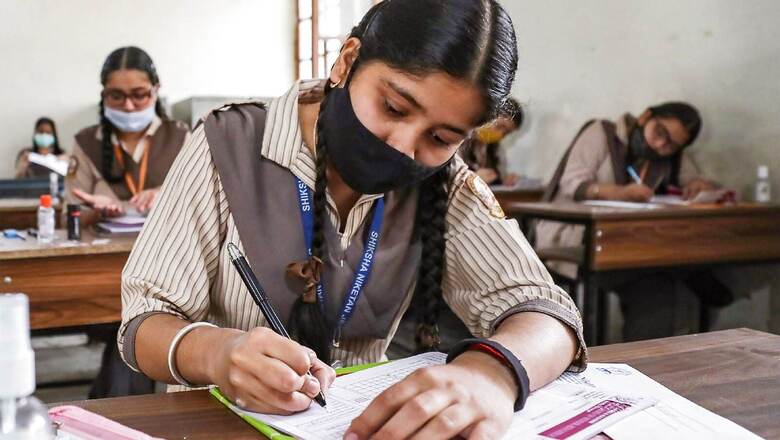
views
The education section has witnessed a drastic transformation since the outbreak of Covid-19 pandemic in 2020. Mushrooming of ed-tech start-ups, shift to online classes, new software and video conferencing technologies and learning apps were tangible changes witnessed in the education ecosystem.
The Centre had cut the education budget by 6% last year, amounting to a total allocation of Rs 93,223 crore. However, the government is expected to raise the amount by around 10% in 2022 since last year’s reduction was attributed towards healthcare.
With the focus now on e-learning, it is important that the government ensures better internet connectivity and infrastructure and makes new programmes accessible to people.
Abhay Agarwal, founder and Fund Manager, Piper Serica, a SEBI registered portfolio management service provider, says, “For India to achieve its targeted annual GDP growth rate of 7% per annum over the decade, the Union Budget needs to stop being just a statement of intent, minor tax tweaks and announcement of small populist schemes.” It therefore needs “bold initiatives” that provide long-term economic development.
In order to create a self-sustaining loop, the government needs to ensure basic education and healthcare, job opportunities, infrastructure development, consumption, formation of private capital and economic growth, Agarwal pointed out.
India has more than 250 million K-12 students of which more than half are in government schools. The government should work with ed-tech companies to ensure quality education and scale up delivery of basic education to all corners of the country.
Ed-tech start-ups have become the forerunners in disseminating skills and conceptual knowledge to student. They are ensuring that a basic skill such as coding can be accessed by children on the mobile phone. Thus, the start-ups need government’s support budget in terms of finance, technology, accessibility and longer-term tax exemptions.
Effective use of technology is the only way that the mass literacy can be guaranteed in a vast country like India. The Budget should have a meaningful allocation to this initiative beyond some small populist schemes. Removal of Goods and Services Tax (GST) on education delivered through digital means should be considered by the government so that the cost comes down for young students.
Tarun Jain, Associate Professor of Economics, Indian Institute of Management Ahmedabad, says investments in education are critical for India’s competitiveness. “The set of students entering higher education is the largest ever in India’s history, and the outcomes of these students will determine the country’s future. India is inherently a knowledge, skills, and capabilities-driven economy. The pandemic creates a pivotal moment for Indian higher education. Expanding the resources for central universities is a critical requirement from this year’s budget.”
He cites the National Science Foundation in the United States to create research grants programmes in the country, open universities, colleges, or research institutions in India. “This motivates our most talented researchers to stay at home, instead of seeking pastures elsewhere,” he added.
Read all the Latest Business News here




















Comments
0 comment